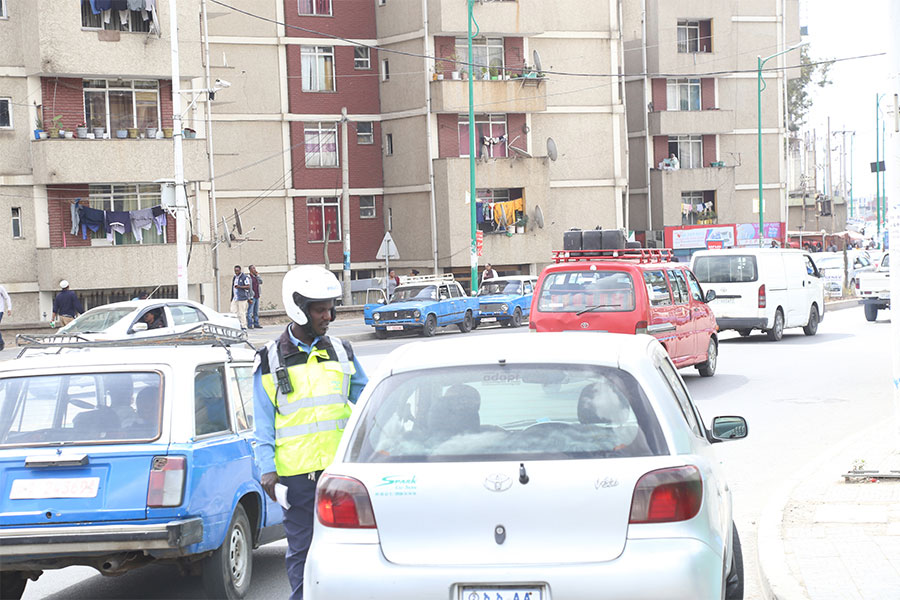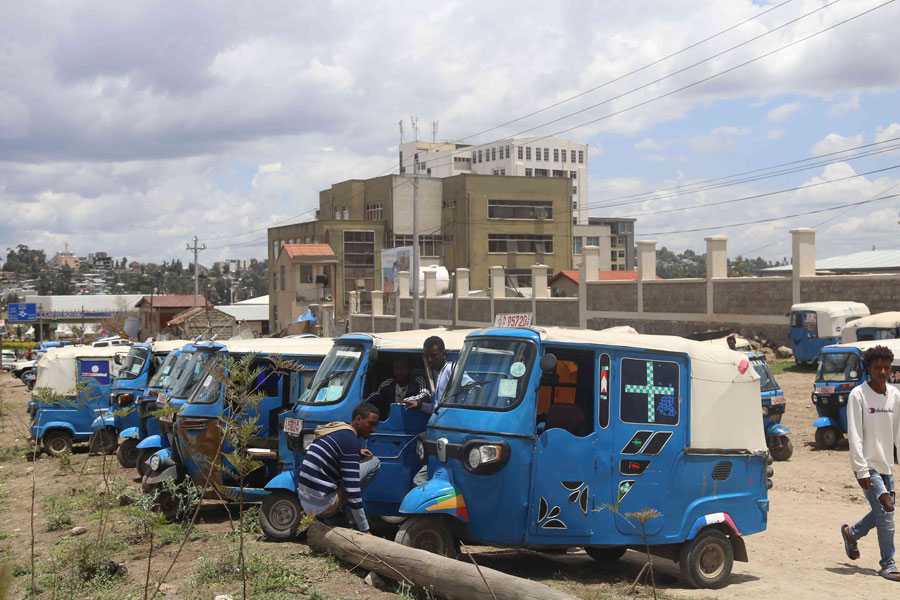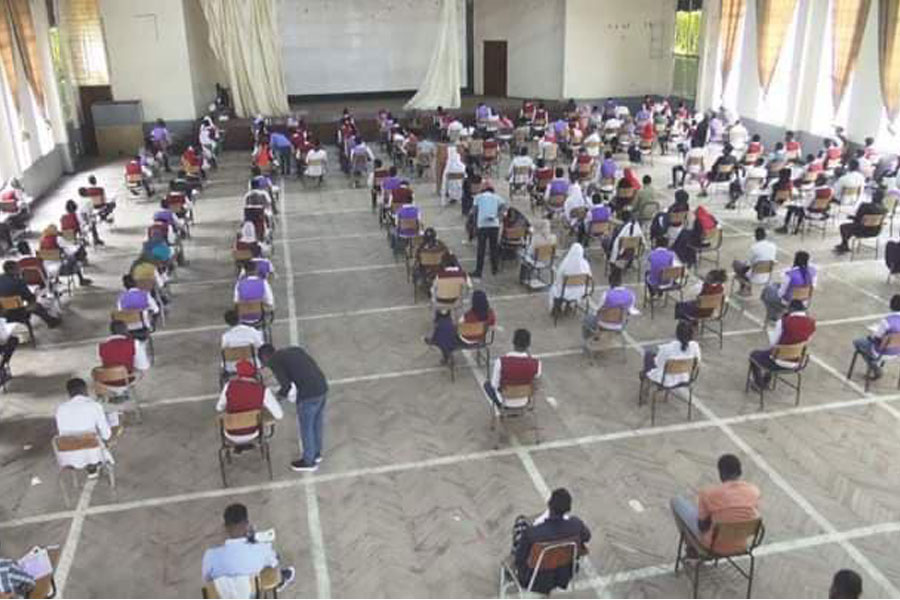
Radar | Nov 23,2019
The Federal Transport Authority has launched an Integrated Transport Management System — a web-based, spatially-enabled solution that allows users to query data on the transport system — for freight transporters at a cost of 30 million Br.
The three-year project, which was kicked off with the aim of digitising the freight and public transport sector, has been initiated with a total budget of 90 million Br. Deployed from a data centre at the Innovation & Technology Institute, the System will include interfaces for fleet management, online payment, an integrated stakeholders module, as well as biometric enrollment.
Allocated by the government, the budget is directed at developing the software and hardware for the digitisation, including the building of servers, setting up a call centre and enhancing branch office infrastructure at checkpoints across the country.
The System is almost finalised for the freight transportation sector in the first phase and will include the public transport sector in the second version. This system will aid online registration, identification generation, license certifications and renewals. It will also enable the control rooms at the Authority to follow up on the status of freight trucks as they move through various checkpoints in the country.
Operationalised following a month-long study conducted by a team from the Authority and the Institute, the system comes on the heels of the latest directive on the standardisation of freight trucks. The latter lays down new criteria for the creation and management of associations or companies of freight truck operators in the country.
The pilot launch is anticipated to take place at three checkpoints at Beleho, Galafi and Dewele near the Djibouti border this month. It will eventually include all 18 checkpoints and is expected to serve as a tool for reporting on the status and number of freight trucks in the country.
However, the launch of such digital systems in several other sectors has not been without its challenges.
Muluken Kere, director-general at the Institute, believes that the initial disinterest of institutions, low levels of awareness on ICT among civil servants, and the complexity of some systems are the main reasons for difficulties.
"When the digital strategy of the country was set in motion, we saw a lot of change," he said. "Institutions started reaching out to us instead of the other way around."
This is also due to an understanding of the inevitability of a knowledge-based economy, according to the director-general.
The Institute offers training and support as well as a sector modernisation team to aid and simplify the transition for partner establishments. It currently avails its services for free in a bid to advance digitisation, but this is expected to change in the future.
"We'll be initiating the second phase relating to public transport once we source the budget," said Muluken.
The system has finalised two rounds of training and will commence the third round with the Authority's demurrage team, which is tasked with reporting and following up on the status of freight trucks. The team will train, among other things, on the use of a cross-checking interface and online tracking of freight trucks. It will include 40 personnel working at different checkpoints across the country.
The first round of the training was given to professionals of the Authority's freight team in charge of providing license and identifications, renewals and cancellations. The eight-day, second-round course instructed approximately 200 freight truck operators on the use of the system, which will fully replace the old paper-based system.
Inputs from all training will be included and incorporated to improve the user interface, according to Mebratu Gidey, acting team leader for system development & implementation at the Authority.
"We won't have to merge this with the old system as there is a new method of freight truck categorisation that comes with the directive," Mebratu said.
Preparation of written and video manuals to be disbursed to all stakeholders is also underway. One facilitator each from the Authority and Institute will be assigned to every operator to ease implementation, scheduled to take place over the course of five months.
This will decrease the amount of time spent issuing letters and going back and forth with the Authority, according to Girma Tadesse, CEO of Union Cross-Border Level-III Transport Owners Association, which had sent two professionals for the training.
"Operators will also be updated on the whereabouts and status of drivers easily," said Girma. "There are instances when drivers work for some other purpose than the one they are supposed to. This is where Djibouti has outpaced us in terms of updated information technology."
This is a sentiment also shared by Girma Belete, logistics & supply chain lecturer at Addis Abeba University School of Commerce, who believes that digitisation can improve the regulatory role of the government and create efficiency in a sector that has limited resources.
"This will need to come along with adequate personnel that can navigate the system," he said. "This also means pushing for progress and not falling behind once the system is launched. We need to be on the lookout for resistance to change."
It will reduce costs for end users as logistics make up a large chunk of value-added expenses, according to Girma.
PUBLISHED ON
Nov 14,2020 [ VOL
21 , NO
1072]

Radar | Nov 23,2019

Fortune News | Apr 29,2023

Editorial | Dec 29,2018

Radar | Jan 19,2024

Agenda | Apr 09,2023

Fortune News | Nov 21,2020

My Opinion | Sep 21,2024

Agenda | Feb 04,2023

Fortune News | Jun 17,2023

Fortune News | Dec 25,2021

Dec 22 , 2024 . By TIZITA SHEWAFERAW
Charged with transforming colossal state-owned enterprises into modern and competitiv...

Aug 18 , 2024 . By AKSAH ITALO
Although predictable Yonas Zerihun's job in the ride-hailing service is not immune to...

Jul 28 , 2024 . By TIZITA SHEWAFERAW
Unhabitual, perhaps too many, Samuel Gebreyohannes, 38, used to occasionally enjoy a couple of beers at breakfast. However, he recently swit...

Jul 13 , 2024 . By AKSAH ITALO
Investors who rely on tractors, trucks, and field vehicles for commuting, transporting commodities, and f...

Jun 28 , 2025
Meseret Damtie, the assertive auditor general, has never been shy about naming names...

Jun 21 , 2025
A well-worn adage says, “Budget is not destiny, but it is direction.” Examining t...

Jun 14 , 2025
Yet again, the Horn of Africa is bracing for trouble. A region already frayed by wars...

Jun 7 , 2025
Few promises shine brighter in Addis Abeba than the pledge of a roof for every family...